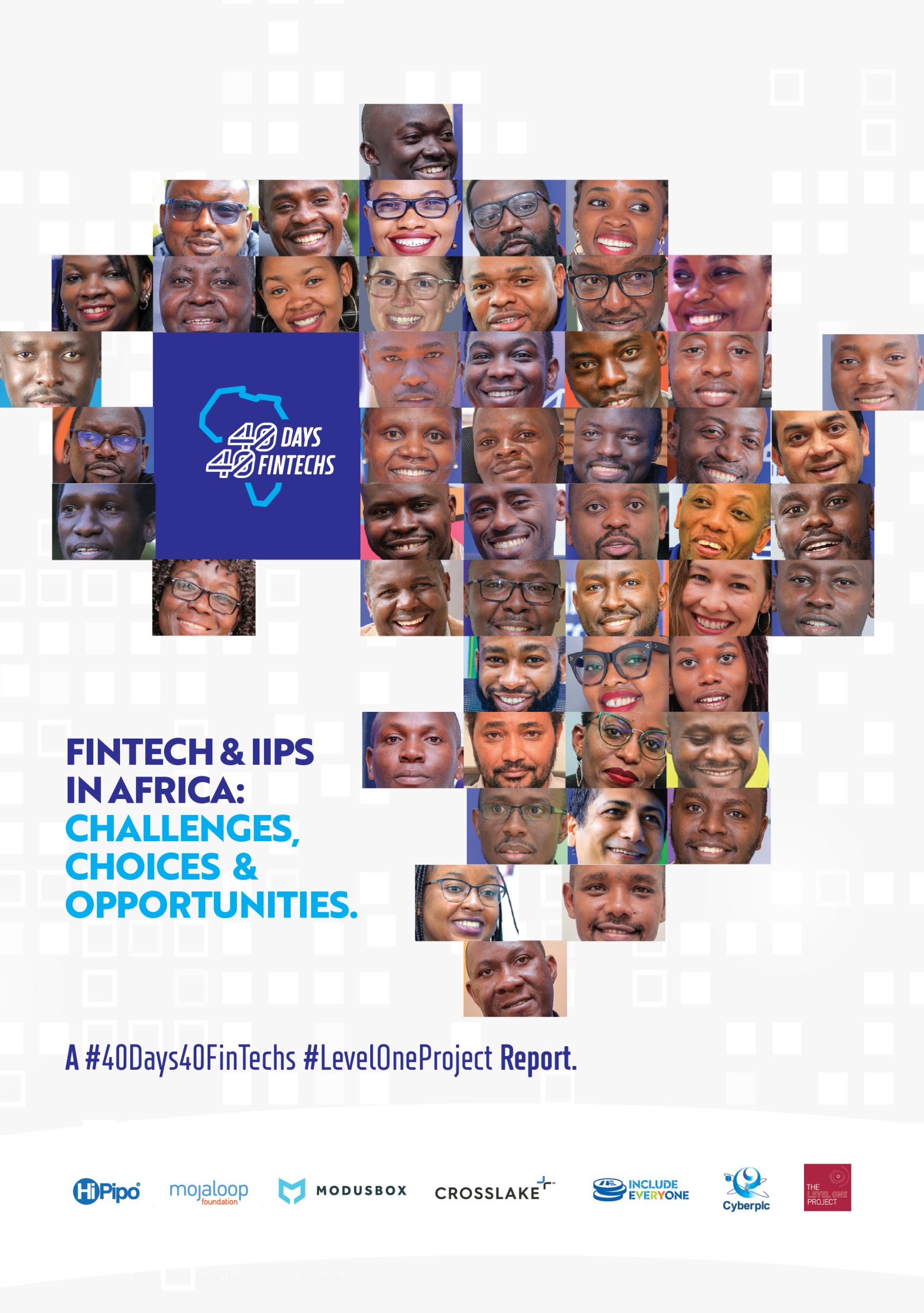FinTech and IIPS in Africa – A 40 Days 40 FinTechs #LevelOneProject 2022 report

Information and Communication Technology (ICT) has transformed Africa’s financial infrastructure. Initial focus has been on giving rich and middle-income users access to advanced digital financial tools. However, the Financial Technology (FinTech) industry will not support sustainable and inclusive growth fully unless all consumers, including low-income and vulnerable groups, which are usually excluded by the traditional banking network, are enrolled into the formal financial system.
HiPipo advocates for and supports Digital Financial Service Providers (DFSPs) who deploy solutions that meet Level One Project (L1P) Design Principles: accessible, reliable, valuable, affordable, and profitable. Indeed, we launched the 40 Days 40 FinTechs programme to encourage the development of a sustainable financial ecosystem that is geared towards meeting the needs of low-income users. Since the inaugural 40 Days 40 FinTechs season in 2020, we have profiled over 100 FinTechs. Working with our local and international partners, HiPipo has supported the nascent FinTech sector by providing access to technical and business skills. For example, we coordinate Mojaloop training that shows DFSPs how to build interoperable, digital payment systems that seamlessly connect stakeholders, such as individual users, banks, government entities, merchants, mobile network operators, providers, and technology companies.
As ever, we are most grateful for the ongoing support of the Bill & Melinda Gates Foundation.
This year, the 40 Days 40 FinTechs programme profiled 47 participants that offer unique solutions to local problems across Africa. For example, Little, a Kenyan FinTech, is revolutionising the transport sector. FutureLink Technologies enables SACCOs to access wholesale credit at 2.5% per annum while the average bank rate in East Africa is 18%. WomenSave uses mobile money accounts to enable unbanked women to save.
We are immensely proud of our success so far. For example, this year’s 40 Days 40 FinTechs campaign generated visibility estimated at roughly $9.1 million. We are confident that our work will be sustainable given our holistic, inclusive, multi-stakeholder and low-income user-focused strategy. For instance, this year, women participation was three times more than season one. Women-led FinTechs have created products in sectors such as agriculture, informal trade, merchants, healthcare, loans and savings.
We also work with relevant stakeholders to ensure that DFSPs and their customers have a governance structure to coordinate FinTech sector policy and regulatory activities. For example, new enabling regulation has created advantages, such as separation of telecom businesses from mobile money operations. Evidence shows increased consumer trust because financial and banking operations are licensed and supervised by relevant financial regulatory authorities. Yet, more work is required to address regulatory issues that still affect FinTechs, such as speed and cost of licensing.
In addition, despite their enormous financial inclusion potential, small FinTechs lack the capacity to build interoperable solutions. Other areas of focus include bettering the lives of the underserved groups, especially women. Moreover, the rising frequency of hacks, exploits and scams against financial solutions has increased the urgency of addressing cyber threats and vulnerabilities.
We are delighted to present to you six Thematic discussions and 47 innovative technical solutions that use financial technology to transform lives across Africa.
Read/Download FinTech and IIPS in Africa – A 40 Days 40 FinTechs #LevelOneProject 2022 report
